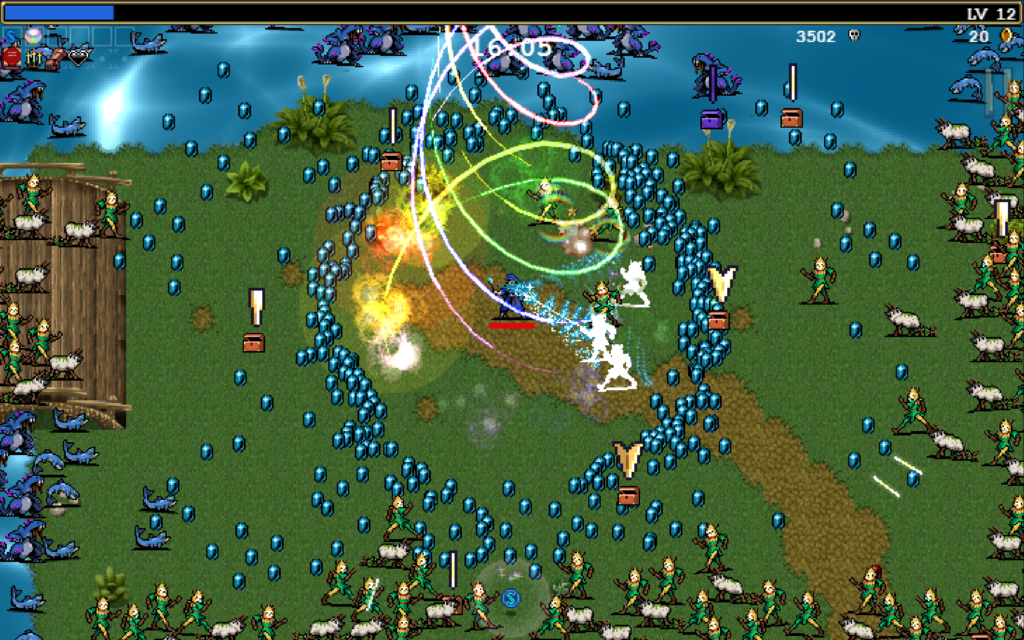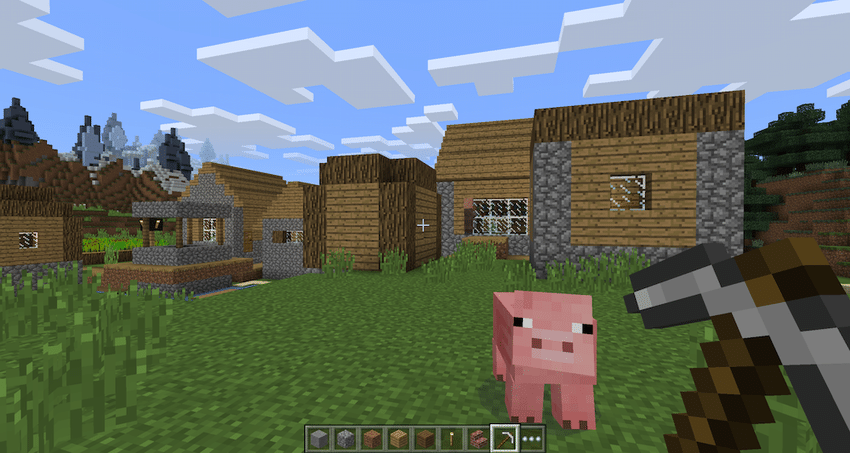Video games are the ultimate escape from the struggles of everyday life for many people. Immersing yourself in a virtual world and freeing yourself from the burdens of work, school and even home life is one of the most popular pastimes in the world, and there is an ever-growing community of gamers that spans all ages. So why do we only hear about young gamers? What about the older generations? Don’t they game too?
Coming into the house after a long day of work, a dad kicks off his shoes, waves hello to his family, grabs a drink and heads upstairs to unwind. You might expect him to sit down and read a book, turn on the tv to watch his detective show, or scroll his phone for the evening. Instead, the dad settles into the chair at his desk, switches on his PC and dons his headset, ready for another evening of fun and relaxation with his friends on his favourite game.
That may seem strange to some of you, not necessarily because you disagree with it, but simply because you’ve never heard about it before. It’s actually fairly common, but a lot of generation X adults feel it’s something they shouldn’t talk about.
I spoke to Steve Baron, 52, from Wells in Somerset about his experience as an older gamer, and how his pastime fits into his family, work and home life.
“My primary reason for playing is to relax, so the type of games I lean towards tend to reflect that. As a result, I predominantly play single player games so that I can take things at my own pace without the pressure of other players.
“However, there is not one single genre I lean towards. I play a lot of simulation style games, some platformers and I occasionally dabble in some bullet hell style games. I also like some open-world stuff.
“As I have got a bit older, I have found my reaction times slowing, so modern FPS multiplayers I find difficult, and I tend to get hammered by the younger generation.”
Online opinion shows that older generations tend to prefer slower-paced, problem solving games, and Steve’s comments reflect that. Some of his favourites include popular simulation games Cities Skylines and Power Wash Simulator, as well as platformers such as Limbo and ‘bullet hell’ games like Vampire Survivors.
These types of games are very successful amongst all age groups, but their ease of access and simple enjoyment makes them perfect for busy adults looking for a relaxing playing session.
Although Steve loves those genres, the game on which he spends the most time is the legendary survival / crafter Minecraft, where he takes part in a private community server of only players older than thirty.
“I find Minecraft really dull to play single player.” he said. “It is a game that becomes much more fun if you are on a realm or a server with other people.
“I have joined lots of realms in the past only to find that they are full of teenagers that I have nothing in common with and do not enjoy playing with. Fortunately, I found a realm a few years ago full of 30 years+ adults that I play on regularly, and it is kept locked down to that age group.”
What people who assume gen X don’t game often forget is that in many ways, they were the first gamers. The 70s saw the beginning of computer games, with what is widely considered to be the original, Pong. “I started playing video games prior to the birth of home consoles.” Steve explained.
“When I was about 16, we had a local chip shop that had turned its upstairs into a pool room, and it had some arcade cabinets in there. We used to go there and spend our evenings playing pool and the games.
It’s these fond memories of childhood that inspire a lot of generation X to revisit old titles in the form of retro gaming.
When asked why he returns to these games even now, Steve responded: “I guess just because I loved these games in my youth and still really enjoy playing them now.”

Videogames can offer a much-needed release from the stress of everyday life, especially for working adults with families. Sometimes an endless list of tasks that need to be done holds people back from relaxation and enjoying some me time.
Steve gave us some insight into how he works around time constraints. “If you have a full-time job and a family at home, it can be difficult to find time to sit down and get into a game whilst maintaining a relationship and getting everything done.
“For most people of my age, it is difficult to strike that balance.”
Finding time to commit to playing can seem impossible, especially if family members don’t understand how it works or why you like it. This means that sometimes older gamers must snatch moments whenever they can.
“Sometimes I will play early in the morning before the rest of them got up. Other times I play if they are all out and I have free time.” Said Steve. “My wife isn’t into games, so for me to put them on the TV in the lounge and make her sit there and watch never really feels fair.”
However, whenever possible Steve he finds opportunities throughout the day for a quick game. “As I work from home I will sometimes play for an hour in the middle of the day when I have my lunch, otherwise it’s time in the evening or at weekends.”
Despite how much he plays, and how much he enjoys it, Steve admitted that gaming is somewhat of a taboo subject among people his own age. “People gaming at my age are a minority.” He explained.
“There are a few online communities where you can find like-minded players, mainly on Reddit, but it is difficult to find people 40 years old+ that game, or are willing to talk about it.
“That might sound a bit strange but there have been people that I work with that I have spoken to for years that have never mentioned they like gaming until it comes out by accident.
“It’s almost like they hide it because it’s not seen as being an ‘adult’ pastime.”
It’s clear that there are supportive and like-minded gaming communities out there for older adults to become a part of. However, it’s also clear that many of that generation are uncomfortable talking about their hobby.
Maybe, the next time you meet someone of that age group, ask them if they play. The answer might surprise you, and you might have more in common with them than you would’ve imagined.
I also spoke to Neil Randall, Associate Professor at the University of Waterloo, Canada, and Executive Director of The Games Institute, a university research centre dedicated to studying games.
He told me about how he sees gaming as a platform for older adults to continue to develop their social skills with others and enjoy themselves independently. “There are several supportive communities online for middle-aged people, some even more collaborative than those of younger generations.
“The number of older gamers is constantly growing, especially since the generations that grew up with the first boom of videogame popularity are beginning to reach that age.”
Neil added that gaming can have a positive effect on the body too. “Problem solving and physical games can have serious health benefits for older adults. It’s known to offset Alzheimer’s and dementia.”

(Not) Marketing for Maturity
With all this talk about generation X’s attitude towards gaming, an insight into how the gaming industry responds to and targets older adults seems necessary. Here to help is Tom Bridge, 33, Associate Director of Generation Media – a marketing and advertising media company that has worked with a number of important clients such as Pokémon and Bethesda Studios to produce massively successful marketing campaigns for some of gaming’s biggest titles.
“With gaming, we aren’t age specific.” Tom explained. “When we target, we will target based on genre.”
When asked how data reflects differences between younger and older people’s preferences, Tom said, “You’ll find that relatively taste stays quite similar. It’s less about age but pockets of interest.
“However, we do find that more of the older age range seem to play triple A, single player games than those quick games like COD.
“There’s not much evidence that a 50-year-old will play this or won’t play something else.”
Tom shared his own opinion on how generation X gamers are represented nowadays. “10 years ago, if someone said my husband plays videogames, they’d be like what?
“Times have changed. It’s a fine thing to play videogames at an older age and it’s the same as watching TV or going to the cinema.”






